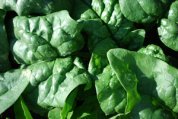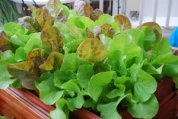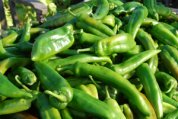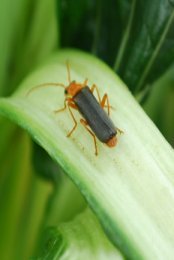8. The "More is Better" Trap
When starting a vegetable garden, beginners too often fall into the “More is Better” trap: If a little organic fertilizer or pesticide is good, more is better.
They see a plant respond to an organic fertilizer with a surge of new growth, and give it a second dose. Then they wonder why it’s all big, green leaves, and no fruit.

|

|

|
Or they wonder why there's suddenly a huge influx of insects, munching on all that excessive, tender foliage.
They see a plant wilting from fungal diseases brought on by over-watering, pay no attention to the fact that the soil is still wet, and pour on more water. This is like adding kerosene to a fire.
The recommended application rates on organic fertilizers and pesticides have been worked out in extensive field tests on farms and hundreds of home gardens. Don’t buck the conventional wisdom on this, follow the package directions!

|
|
Aphid Predators © Steve Masley Click IMAGE to Enlarge |
Even when you're using safe organic pesticides like neem, they should only be used as a last resort. Often, if you watch and wait, nature will take care of the pest problem for you.
My spray finger used to twitch when I'd see the aphids completely encrusting my rosebuds every spring, but just when I couldn't hold back any more, an army of soldier beetles would sweep into my garden from the fields nearby, and only the only trace of all the aphids I'd seen would be whispy mouthparts at the base of the buds.
If I had used neem to kill the aphids, I might have killed the soldier beetles as well.
See Natural Garden Pest Control for more information on using beneficial insects to control garden pests.
Back to Starting a Vegetable Garden
Top Ten Mistakes Beginning Gardeners Make:
Copyright © 2009-2025, by Steve Masley, Grow-it-Organically.com
All rights reserved
HOME | About Us | Contact Us | Privacy
New! Comments
Have a question or comment about what you just read? Leave me a comment in the box below.